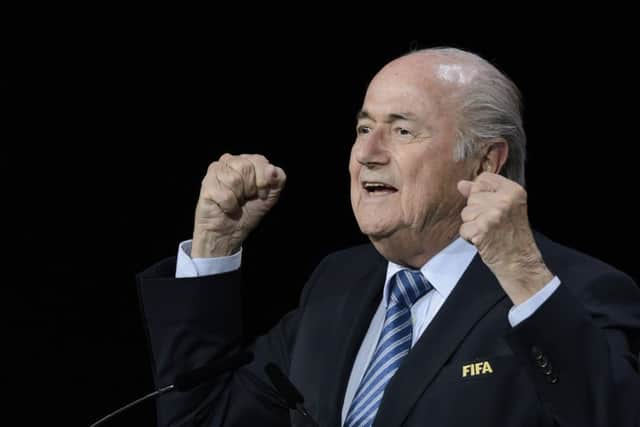Leaders: Sepp Blatter victory will be short-lived


His popularity endures because Fifa has looked after countries where football has required development and new facilities. Scores of nations feel loyal to Blatter because of the investment that has come their way, such as artificial pitches, headquarter complexes and professional support.
In Africa and Asia, for instance, Blatter’s supposed generosity is worth more than taking a stand against corruption. Nations fear that if Blatter was forced out, his replacement would not look on them as favourably. It is a flawed conclusion to reach. The money invested by the Blatter regime does not belong to the president. It is Fifa’s money, and the world governing body is obliged to invest in its members regardless of which personality is at its head.
Advertisement
Hide AdAdvertisement
Hide AdBlatter has survived for now, but his reign will not last much longer. Football has been seriously damaged this week and although Blatter says that he is the man to fix it, most of the rest of the world can see that the sport is in the dock because of his leadership. He is either complicit in corruption, which he denies, or he has been asleep at the wheel as a multi-million pound fraud has taken place.
Fifa’s members have not removed him, which leaves the question of how those who voted against him at yesterday’s presidential election can seize power without further delay. A boycott of the World Cup has been suggested, which could be effective but could also turn into a protracted game of bluff. In Europe, for instance, qualifying matches are not scheduled to begin until September 2016.
A breakaway to form a rival or replacement global governing body is another possibility. This would be a risky strategy, because it is far easier to break away than it is to merge. Football could remain irrevocably split, which is not a desirable future for the game. But if it came to that, and Fifa was to be replaced entirely, that would be a price worth paying.
It would be better for international football to remain cohesive and find a solution from within. That requires a coup, but first a recognition that the game is stained, and the World Cup, the biggest of all sporting events, is under serious threat.
No-one knows better than Blatter that money talks. The way he will be removed is if – indeed, when – sponsors withdraw, as they may do when the full extent of the corruption allegations play out. The clock is ticking.
Cameron sending a signal to SNP
Naming the chairman of the Scottish Conservative Party as the new Advocate General for Scotland will be branded a political appointment. Of course it is. Richard Keen QC succeeds Baron Wallace of Tankerness, alternatively known as Jim Wallace, the Liberal Democrat MP and former Deputy First Minister. The first holder of the office was Baroness Clark of Calton, who was then Dr Lynda Clark, a Labour MP in Edinburgh.
So, in one respect, Mr Keen’s appointment does not break new ground. But where it starts to differ is in the political circumstances in which the Advocate General has to operate.
Here we have an influential figure from a party which opposed change, taking on a central role in supporting the UK government at a delicate juncture as it brings in legislation to extend devolution at Holyrood.
Advertisement
Hide AdAdvertisement
Hide AdMr Keen is one of the most prominent figures in Scottish legal circles, where he is known as “The Rottweiler”.
If the SNP is looking to pick a fight over the Scotland Bill, or possible further powers, it will face a robust opponent in the shape of Mr Keen.
This is where Prime Minister David Cameron plays a cunning game. He talks of listening, and considering proposals for further powers. Then his attitude hardens when talk turns to action.
Mr Keen will deliver expert advice to the UK government on issues of Scots law, there is no doubt.
But it sends a signal to Nationalists that Mr Cameron’s promise to consider others’ views might not have compromise at its heart.